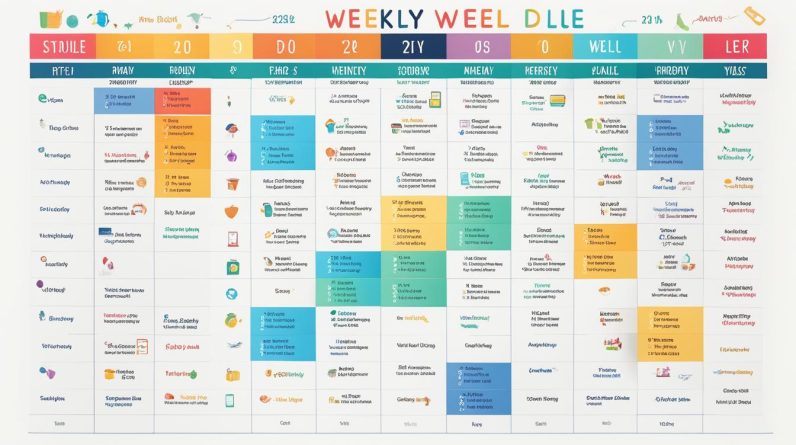Welcome to our comprehensive guide on Michigan home schooling requirements. If you’re considering homeschooling your child in Michigan, it’s essential to understand the laws and regulations that govern this educational option. Michigan’s homeschooling requirements are lenient and straightforward compared to many other states, providing families with flexibility and freedom in their approach to education.
There are two options for homeschooling in Michigan: homeschooling as a non-public school or homeschooling under a home education program. Under both options, parents are required to cover certain subjects, such as reading, spelling, math, science, history, civics, literature, writing, and English grammar. Michigan does not have specific regulations regarding graduation requirements for homeschoolers, giving families the opportunity to tailor their child’s education to their specific goals and aspirations.
In this guide, we will walk you through the two homeschooling options in Michigan, provide information on access to school services, discuss homeschool recordkeeping, explore graduation requirements, and explain the process of enrolling in public school after homeschooling. Whether you’re just starting your homeschooling journey or seeking guidance on specific aspects of homeschooling in Michigan, we’ve got you covered.
Key Takeaways:
- Michigan offers two options for homeschooling: homeschooling as a non-public school or homeschooling under a home education program.
- Homeschoolers in Michigan have access to certain services provided by the public school system, including participation in yearly state testing, access to extracurricular activities, and eligibility for special education services.
- While Michigan does not legally require homeschoolers to maintain specific records, it is advisable for parents to create a portfolio documenting their child’s progress year to year.
- Michigan does not have specific guidelines for graduating homeschooled students, allowing parents to determine the criteria for graduation based on their child’s educational goals.
- If a homeschooling family decides to enroll their child in public school after a period of homeschooling, each school may have its own enrollment guidelines and grade placement requirements.
Two Options for Homeschooling in Michigan
Michigan offers two options for homeschooling: homeschooling as a non-public school or homeschooling under a home education program. Each option has its own requirements and benefits to consider.
Homeschooling as a Non-Public School
Under the non-public school option, parents can establish their homeschool as a non-public school. This option requires subjects to be taught by a certified teacher or claim a religious exemption. The curriculum must be comparable to the local district’s curriculum.
Some benefits of homeschooling as a non-public school include:
- Access to additional resources and support
- Recognition as a non-public school, providing a sense of legitimacy
- Flexibility in creating a curriculum tailored to your child’s needs
It’s important to note that homeschooling as a non-public school may involve additional reporting and documentation requirements.
Homeschooling under a Home Education Program
The home education program option allows homeschooling to begin without an enrollment process or reporting to a school official. Parents have more flexibility in designing their curriculum while still ensuring certain subjects are covered.
Subjects that must be included in the home education program curriculum are:
- Reading
- Spelling
- Math
- Science
- History
- Civics
- Literature
- Writing
- English grammar
With the home education program option, parents can customize their child’s education according to their interests and learning style. It offers the freedom to explore various teaching methods and resources.
Access to School Services as a Homeschooler
As a homeschooler in Michigan, you may be wondering about the availability of school services for your child. While you have chosen to educate your child at home, you still have access to certain services provided by the public school system. These services can enhance your child’s educational experience and provide opportunities for socialization and enrichment.
Participation in Yearly State Testing
One of the benefits of homeschooling in Michigan is that your child can participate in yearly state testing, even if they are not enrolled in a public school. The state requires all students, including homeschoolers, to take standardized tests to assess their academic progress. This allows you to gauge your child’s performance and ensure they are meeting the necessary educational standards.
Participation in Athletics and Extracurricular Activities
Homeschoolers in Michigan can also engage in athletic activities and extracurricular programs offered by local public schools. Depending on the approval of the local school board, your child may have the opportunity to participate in sports such as basketball, soccer, track and field, and more. Additionally, they may have access to extracurricular activities like band, physical education, and driver’s education, provided these programs are approved by the local school board.
“Participating in public school athletic programs allows homeschoolers to develop their physical skills, teamwork abilities, and foster friendships with peers from diverse backgrounds.” – Jane Smith, Michigan Homeschooling Parent
Eligibility for Special Education Services
If you choose the non-public school option for homeschooling, your child is also eligible for special education services if needed. The public school system recognizes the importance of accommodating students with special needs, regardless of their educational setting. If your child requires additional support, you can work with your local school district to access these services and ensure your child’s educational needs are met.

Having access to these school services as a homeschooler in Michigan allows you to provide a well-rounded education for your child. Whether it’s participating in state testing, engaging in athletic activities, or accessing special education services, these opportunities can supplement your homeschooling efforts and provide a more comprehensive learning experience.
Homeschool Recordkeeping in Michigan
While Michigan does not legally require homeschoolers to maintain specific records, it is advisable for homeschool parents to create a portfolio of their child’s progress year to year. This portfolio can be useful if the child needs to return to a traditional school or when creating a high school transcript. It may include:
- Scores on standardized tests
- Report cards or grades by subject
- Samples of subject work
- Extracurricular activities
- Volunteer service
By documenting your child’s educational journey, you can demonstrate their academic achievements, showcase their skills and abilities, and provide evidence of their learning experience. It can also serve as a personalized record of their growth and development.

Creating a portfolio not only helps in tracking your child’s progress but also adds credibility to their educational experience. It provides a record of their accomplishments and showcases their academic abilities to potential colleges, universities, or employers.
“A well-documented portfolio can be a valuable resource when applying to colleges or seeking employment. It allows you to present a comprehensive overview of your child’s education and achievements.”
Remember to keep your portfolio updated regularly and organize it in a systematic manner. This way, you will have a comprehensive record of your child’s homeschooling journey, making it easier to compile transcripts and documentation when needed.
Michigan Homeschool Graduation Requirements
Graduating from homeschool in Michigan does not have specific guidelines set by the state. However, compulsory attendance is required until the age of 17. As a homeschool parent, you have the flexibility to determine the criteria for graduation based on your child’s educational goals and future plans.
You can choose to follow the Michigan Merit Curriculum guidelines or tailor your homeschooling approach to align with your child’s aspirations, whether they plan to attend college or pursue a different career path.
Michigan Merit Curriculum
The Michigan Merit Curriculum is a set of academic standards established by the state for all public high school students. While it is not mandatory for homeschoolers to follow these guidelines, some parents choose to use it as a framework for their homeschool curriculum.
Here is an overview of the Michigan Merit Curriculum requirements:
| Subject | Credits |
|---|---|
| English Language Arts | 4 |
| Mathematics | 4 |
| Science | 3 |
| Social Studies | 3 |
| Visual, Performing, and Applied Arts | 1 |
| Physical Education and Health | 1 |
| World Languages | 2 |
| Online Learning Experience | 1 |
| Approved Online Course/Online Learning Experience | 1 |
| Personal Curriculum | Varies |
| Total Credits | 18 |
Note: Homeschoolers are not required to meet the exact credit requirement, but it can serve as a useful reference when determining the depth and breadth of your child’s high school education.
Remember, as a homeschool parent in Michigan, you have the freedom to design an individualized graduation plan that best suits your child’s educational journey.

Enrolling in Public School after Homeschooling
If you have made the decision to transition your child from homeschooling to public school in Michigan, it’s important to understand the process and requirements for enrolling in a public school. While each school may have its own guidelines and procedures, here are some general steps to help facilitate a smooth transition:
- Contact the School: Reach out to the public school you are interested in enrolling your child in. It’s best to contact the school directly to inquire about their enrollment process and any specific documents they may require.
- Provide Necessary Information: Some schools may request information on the homeschool curriculum and materials used. This helps them assess the student’s academic level and determine the appropriate grade placement.
- Schedule a Meeting: In some cases, the school may arrange a meeting with you and your child to discuss their educational background and assess their needs. This meeting can help ensure a smooth transition and enable the school to provide appropriate support.
- Submit Required Documents: The school may require you to submit certain documents, such as your child’s academic records, immunization records, and proof of residency. Make sure to gather all the necessary paperwork to complete the enrollment process.
- Address Grade Placement: When transitioning from homeschooling to public school, the school may determine the appropriate grade level for your child based on their assessment. However, some schools may allow parents to register their child for the desired grade level. It’s essential to discuss grade placement with the school to ensure your child receives the education that best suits their needs.
Remember that each school may have its own specific requirements, so it is crucial to contact the school directly for accurate information. By following the school’s enrollment process and providing the necessary documentation, you can ensure a successful transition from homeschooling to public school.
Whether your child is transitioning from homeschooling to public school or vice versa, it is essential to consider their individual needs and find the educational environment that best supports their growth and development.
Is It Easy to Homeschool in Michigan?
Homeschooling in Michigan is an attractive option for parents seeking flexibility and independence in their child’s education. One of the key advantages of homeschooling in Michigan is the ease and leniency of the state’s homeschooling regulations. Unlike some states with strict reporting and testing requirements, Michigan has minimal regulations in place, making it easier for families to pursue homeschooling.
Michigan’s homeschooling requirements primarily focus on the subjects that must be covered in the curriculum. As a homeschooling parent, you are responsible for teaching subjects such as reading, spelling, math, science, history, civics, literature, writing, and English grammar. However, Michigan does not require specific reporting or testing, giving you more control over your child’s education.
This lack of strict regulations provides homeschooling families with the freedom to tailor their curriculum to their child’s needs and interests. It allows you to choose teaching methods, resources, and schedules that work best for your family’s unique circumstances. Whether you prefer a structured approach or a more flexible learning environment, homeschooling in Michigan accommodates a variety of educational philosophies.
Many homeschooling families appreciate the ease of homeschooling in Michigan because it reduces the administrative burden often associated with homeschooling. You are not required to submit annual reports or attend regular meetings with school officials. Instead, you have the freedom to focus on providing an enriching educational experience for your child.
Flexibility and Freedom
One of the primary advantages of homeschooling in Michigan is the flexibility and freedom it offers. Without the need for extensive reporting and testing, you have more time and flexibility to explore subjects in-depth, pursue extracurricular activities, and adapt the curriculum to your child’s individual learning style. Whether your child is a fast learner who thrives on acceleration or requires additional time to grasp certain concepts, homeschooling allows you to tailor the pace and approach to their needs.
Homeschooling also allows for a more personalized education. You can customize the curriculum to focus on your child’s interests, strengths, and future goals. Whether your child is passionate about art, science, or music, you have the flexibility to provide specialized instruction that nurtures their talents and passions.
The Benefits of Minimal Regulations
The minimal requirements and regulations for homeschooling in Michigan provide families with a sense of autonomy and empowerment. You are not bound by a prescribed curriculum or rigid schedule. Instead, you have the freedom to choose educational materials, resources, and teaching methods that align with your values and educational goals.
Without the constraints of strict regulations, you can incorporate innovative teaching approaches, such as hands-on learning, field trips, and experiential learning opportunities. This flexibility allows for a more immersive and engaging educational experience, fostering a love for learning and encouraging critical thinking and independent inquiry.
By embracing the ease of homeschooling in Michigan, you can create a tailored educational journey that meets your child’s unique needs, interests, and aspirations.

Is Homeschooling Regulated in Michigan?
When it comes to homeschooling regulations, Michigan is known for its lenient approach compared to other states. Under the classification of the Home School Legal Defense Association (HSLDA), Michigan is considered a no notice, low regulation state. While there are specific requirements outlined in the law, such as teaching certain subjects, the state does not require homeschoolers to submit reports or register their homeschooling programs.
In Michigan, homeschooling parents have the freedom to design their own curriculum and tailor their child’s education to their individual needs. This flexibility allows families to create a personalized learning environment while adhering to the state’s guidelines.
“Michigan is considered a no notice, low regulation state.”
As a homeschooling parent in Michigan, you have the liberty to choose the educational approach that best suits your child. Whether you prefer a structured curriculum or prefer a more eclectic approach, you have the freedom to make those decisions.
While the regulations may be minimal, it is important to ensure that you are meeting the state’s requirements. Michigan law mandates that certain subjects, such as reading, spelling, math, science, history, civics, literature, writing, and English grammar, be covered in your homeschool curriculum. By including these core subjects in your lesson plans, you can confidently meet the state’s educational standards.
Overall, Michigan’s homeschooling regulations offer families the flexibility and autonomy to provide a high-quality education for their children within the state’s guidelines.
| Pros | Cons |
|---|---|
| Flexibility to design your own curriculum | No financial support or funding |
| Freedom to create a personalized learning environment | No standardized testing requirements |
| Ability to tailor education to individual needs | No diploma granted by the state |
| Opportunity to incorporate real-world experiences and field trips | No specific graduation requirements |
| Access to certain public school services and activities | Requires self-discipline and motivation |
Homeschooling Popularity in Michigan
In Michigan, homeschooling has gained significant popularity among families as an alternative to traditional schooling. Approximately 5% of families in the state have chosen homeschooling as their preferred educational option. This growing trend reflects the national increase in homeschooling.
More and more parents are recognizing the benefits and flexibility that homeschooling offers. It allows families to tailor their children’s education to their individual needs, providing a personalized learning experience. Homeschooling also offers the freedom to create a customized curriculum and schedule, ensuring a well-rounded education.
The statistics indicate a strong presence of homeschooling in Michigan, as families embrace this educational approach. The reasons for choosing homeschooling vary from family to family, including factors such as academic performance, values-based education, individualized attention, and unique extracurricular opportunities.
As homeschooling continues to grow in popularity, Michigan remains an attractive state for families seeking educational alternatives. The freedom, flexibility, and personalized nature of homeschooling make it an appealing choice for many parents in Michigan.
FAQ
What are the homeschooling options in Michigan?
Michigan offers two options for homeschooling: homeschooling as a non-public school or homeschooling under a home education program.
What subjects do I need to cover when homeschooling in Michigan?
When homeschooling in Michigan, you are required to cover subjects such as reading, spelling, math, science, history, civics, literature, writing, and English grammar.
Can homeschoolers in Michigan access public school services?
Yes, homeschoolers in Michigan have access to certain services provided by the public school system, including yearly state testing, participation in athletics (subject to local school board approval), and access to extracurricular activities.
Do I need to keep records of my homeschooling in Michigan?
While Michigan does not have specific recordkeeping requirements for homeschoolers, it is advisable to maintain a portfolio of your child’s progress for future reference.
What are the graduation requirements for homeschoolers in Michigan?
Michigan does not have specific graduation requirements for homeschoolers. Homeschool parents can choose to follow the Michigan Merit Curriculum guidelines or align their homeschooling goals with the student’s future plans.
Can my homeschooled child enroll in public school after homeschooling in Michigan?
Yes, homeschooled children in Michigan can enroll in public school after a period of homeschooling. Each school may have its own enrollment guidelines and grade placement requirements.
How easy is it to homeschool in Michigan?
Homeschooling in Michigan is considered to be easy and lenient compared to other states. The state has minimal requirements and provides flexibility and freedom for homeschooling families.
Is homeschooling regulated in Michigan?
Michigan has homeschooling regulations, but they are considered to be low compared to other states. Homeschooling is classified as a no notice, low regulation activity by the Home School Legal Defense Association.
How popular is homeschooling in Michigan?
Approximately 5% of families in Michigan choose homeschooling as an alternative to traditional schooling, reflecting the national trend of increasing homeschooling popularity.






